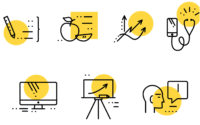
Examining lived experiences in a professional development program for online teaching: A hermeneutic phenomenological approach
The increased number of courses taught in an online environment has led to more teachers in need of professional development for online or blended teaching. Although various professional development programs have been scrutinised, only a few studies integrate the feelings of teachers during their professional development process. Teachers’ feelings form an inherent part of their […]











